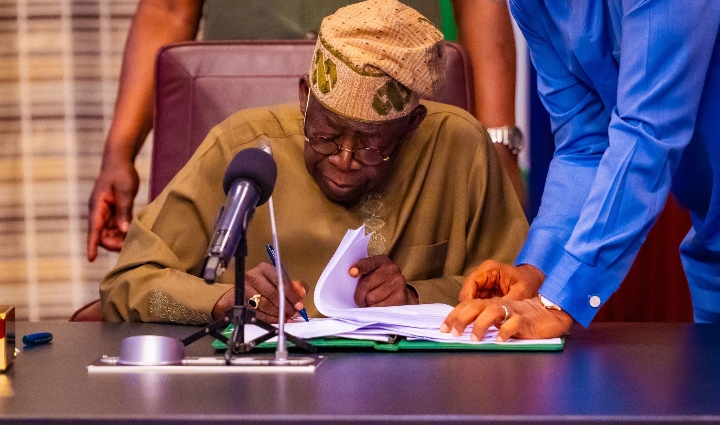…advocates stronger oversight to align with the Renewed Hope Agenda for sustainable growth
The Speaker of the House of Representatives Hon. Abbas Tajudeen, has said that President Bola Ahmed Tinubu, GCFR, is working assiduously to address Nigeria’s public debt through a non-oil revenue drive.
This is even as the Speaker noted that public debt, if well utilised, can engender growth and development in any country.
He said Nigeria could leverage responsible borrowing for sustainable development as demonstrated by the Tinubu administration.
“Indeed, public debt, when managed prudently, can be a tool for growth and prosperity. Yet, when left unchecked, it becomes a burden that erodes economic stability and threatens the welfare of future generations,” Speaker Abbas noted.
The Speaker said while delivering his keynote address in Abuja on Monday at the opening of the 11th Annual Conference and General Assembly of the West Africa Association of Public Accounts Committees (WAAPAC). He was represented at the event by the Leader of the House, Prof. Julius Ihonvbere.
The Public Accounts Committee of the House, with the support of WAAPAC and international development partners, organised the event with the theme ‘Strengthening Parliamentary Oversight of Public Debt: The Role of Finance and Public Accounts Committees.’
A statement by the Special Adviser on Media and Publicity to the Speaker, Musa Abdullahi Krishi, noted that the Speaker’s remarks were not a call to reject borrowing outright but reflected a responsible approach to debt management—one that ensures that borrowing translates into real value for Nigerians.
This, the statement noted, aligns squarely with President Bola Ahmed Tinubu’s Renewed Hope Agenda, which prioritises fiscal discipline, prudent resource management, and channeling funds into critical areas like infrastructure, education, green energy, and social welfare.
Last week, President Tinubu announced during a meeting with the stakeholders of The Buhari Organization in Abuja, Nigeria, had met its revenue target for 2025 ahead of schedule and would no longer rely on borrowing to fund its budget.
The President also said his administration’s non-oil revenue drive had yielded enough to meet this year’s projections by August, reducing Nigeria’s dependence on external loans.
“Today I can stand here before you to brag: Nigeria is not borrowing. We have met our revenue target for the year, and we met it in August,” the president said.
At the WAAPAC event, the Speaker emphasised the “need for stronger oversight, transparent borrowing practices, and a collective resolve to ensure that tangible economic and social returns match every naira borrowed.”
He added, “When we examine the sources of Africa’s external financing, it becomes clear that the weight of debt on our continent is shaped by whom we borrow from and on what terms. Today, Western private lenders hold about 35 percent of Africa’s government debt through banks, asset managers, and oil traders.
“Multilateral institutions, such as the World Bank and the IMF, account for another 39 percent, while bilateral loans from other governments comprise 13 percent. Chinese creditors, despite much of the public debate, hold only 12 percent.
“To place this in sharper focus, in 2019, bondholders alone represented 27 percent of Africa’s external debt, making them the single largest creditor group, ahead of China at 13 percent.”
Speaker Abbas stated that if Africa is to grow stronger, the countries must not only negotiate fairer terms of borrowing but also rethink their dependence on external finance.
“We must channel more energy into mobilising domestic resources, fostering intra-African trade, and creating financial instruments that serve the continent’s own development priorities. Only then can we move from vulnerability to resilience, and from dependency to true economic sovereignty,” he said.
The Speaker stated that the conference could not have come at a more opportune time, “as our nations face mounting fiscal pressures that demand stronger legislative oversight of public debt and borrowing.”
He also noted that the theme “speaks directly to the urgency of safeguarding our financial future,” stressing that it “goes to the very heart of democratic governance and sustainable development.”
Speaker Abbas said, “Therefore, oversight of public debt is a democratic duty and a moral responsibility of the legislature. Our parliaments must ensure that every borrowing decision reflects prudence, transparency, and the collective interest of our citizens.
While noting that the implications of this debt structure are far-reaching, the Speaker said a “significant share of our national revenues is tied to debt servicing rather than being invested in the things our people need most: roads, schools, hospitals, and innovation.”
He added that the high cost of commercial loans, coupled with the burden of repayment in foreign currencies, leaves many African economies vulnerable to market shocks. “This narrows fiscal space, constrains domestic policy choices, and slows the pace of sustainable development,” he said.

